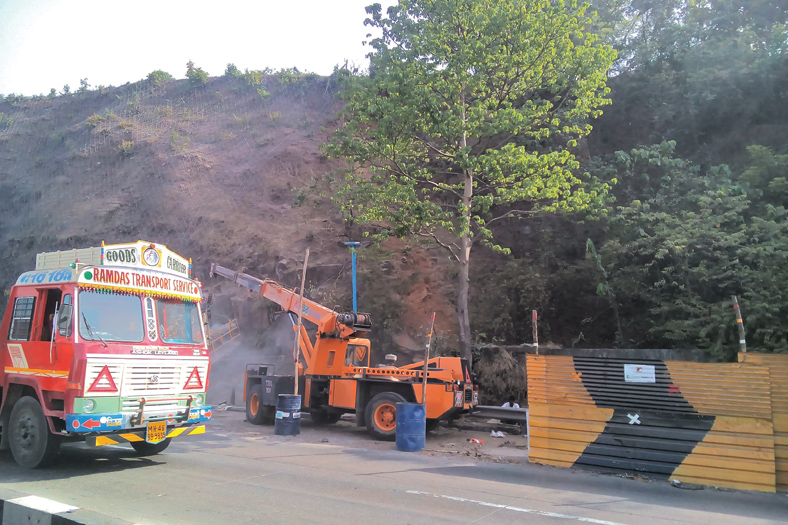Sand ban: for the sake of nature
Sand ban: for the sake of nature
Ban on sand mining due to environmental concerns is adversely affecting the real estate sector, as sand is a major building material for construction. ACE Update highlights the current status and suitable alternatives available
Sand is one of the most critical ingredients in construction sector. However, sand mining, the practice used to extract sand mainly from ocean beds and river beds, causes erosion and impacts the local wildlife. This practice remained unchecked for many decades in India.
In an order to curb this practice, the Supreme Court ordered banning illegal sand mining. Recently, the apex court has issued notice to centre and all states seeking their response for framing rules for preventing illegal sand mining on river banks. However, the construction industry is in a dilemma in dealing with the situation where the demand-supply gap of sand is widening day by day. Moreover, till now, there is no alternative discovered which can completely replace the use of sand, at least in construction.
Calling the ban on sand a disaster for Indian real estate sector, T Chitty Babu, Chairman and CEO of Akshaya Pvt Ltd said, “Construction industry has seen a consistent growth over the past 10 years, this stable growth is about to see a drawback due to limited availability of sand. Sand and bricks, apart from steel, cement and aggregate, are the prime raw material that goes into construction, they constitute up to three-fourth of the cost and labour the balance. On and off availability of the elixir of construction industry – sand results in projects running behind schedule leading to cost overruns, which ultimately will have to be borne by the consumer.”
Almost echoing this statement Mandar Chiwate, Purchase Manager, Amar Builders said, “For any construction activity cement, aggregates and sand are the major resources. Be it concrete, plastering or tiling, sand is the major constituent. The scarcity of sand is one of the major reasons behind delays in construction activity and rise in production cost. Sand ban will slow down the development pace and ultimately affect the overall growth and economy of the country. However, looking at the other side of the coin, sand ban will reduce excessive dredging in river bed, which is not only impacting rivers adversely but also affecting environmental balance.”
In search of alternativesWhen asked about how real estate sector is going to tackle this crisis, Mr Chiwate said, “The industry is already coming up with ways to reduce dependency on sand. There have been experiments and research being carried out to find another alternative to natural sand. Crushed stone sand and artificial sand has already been put into use instead of natural sand. For example, instead of internal plaster-gypsum punning is being used. It has improved the quality of wall finishing and also replaced the use of sand. For wall cladding, chemical adhesives are being used. For flooring, use of crushed sand along with chemical adhesives is being used.”
He added “Although most of these solutions are not yet completely cost effective, but they will become affordable once sand is completely banned and the use of these substitutes is on a higher scale. At Amar Builders we have already started shifting over to these alternative options, as they not only help us improve quality but are also extremely environmentally friendly.” The builder has taken the initiative to build all its current and future projects compliant to Indian Green Building Council (IGBC) norms.According to Chitty Babu, “The crisis can be tackled by going for sand alternatives. RMC or ready-mix concrete is one option, as sand is substantially used for concreting purpose, it is expensive but convenient. Concrete rock sand, manufactured sand from stone quarries and brick substitutes can also be used. These materials are relatively more environment-friendly and prevent over-exploitation of river sand and clay.”
He adds, “Artificial sand is an alternative though it cannot be utilised for complete construction of a building but is helpful in reducing the usage of natural sand. Quite a number of plants manufacture this in India. These moves would reduce the requirement of local sand.”
Artificial sand is an alternative though it cannot be utilised for complete construction of a building but is helpful in reducing the usage of natural sand
T. Chitty Babu, Chairman and CEO, Akshaya
Artificial sand – the only option available?The use of artificial sand combined with crushed sand for various activities is a good option, and probably the only solution that the real estate and construction industry currently has. The roundness, surface area and gradation of particles in natural sand are unique thus give a superior finish. “Artificial sand can be manufactured with similar roundness and surface area. This when mixed with crushed sand can give similar finish as that of natural sand,” said Mr Chiwate,
“Artificial sand could be effective in basement, pavement filling and other minor building activities but cannot be used for building an entire structure,” opined Mr Chitty Babu.
Sand ban will slow down the development pace and ultimately affect the overall growth and economy of the country
Mandar Chiwate, Purchase Manager, Amar Builders
Future optionsResearch is being carried out to find viable, sustainable and workable economical substitutes for sand used in water proofing and external plaster. However, construction industry, by large, feels, there is no better option than sand which has been under usage traditionally. However, RMC has emerged as the most suitable alternative to sand. It refers to concrete that is manufactured in a factory or batching plant. “RMC results in a precise mixture, allowing specialty concrete mixtures to be developed and implemented on construction sites. This could be preferred over on-site concrete mixing because of the precision of the mixture. This could also be custom made to suit different applications. Another option for sand can also be the use of recycled glass and debris used in the construction sites,” observed Chitty Babu.
“The need for sustainable solutions and extensive research in the use of chemicals will help the real estate sector to use better and new options effectively,” commented Mr Chiwate.
Cookie Consent
We use cookies to personalize your experience. By continuing to visit this website you agree to our Terms & Conditions, Privacy Policy and Cookie Policy.









